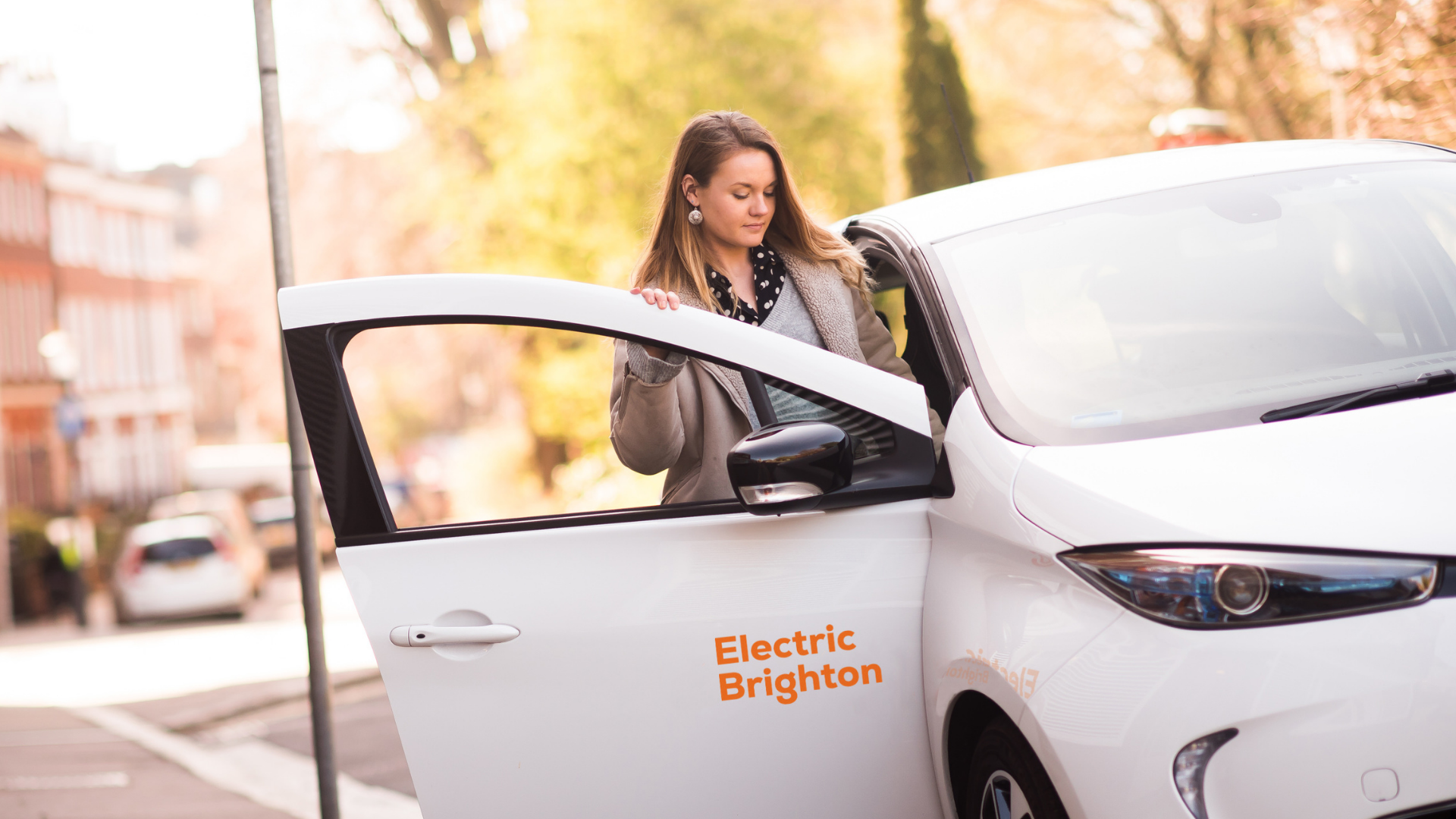He said if the club got off the ground it could spare drivers the “time, money and hassle associated with car ownership”, helping tackle congestion, parking and pollution problems at the same time.
“Car clubs are super helpful because they reduce the number of private cars on the roads and reduce the cost of ownership,” Kiss said.
“With electric cars this is important because they haven’t yet reached price parity with other vehicles available.”
According to the RAC Foundation, the average car spends more than 95 per cent of its lifetime parked up and going nowhere.
Additionally, Electric Brighton says, car clubs have been shown to increase walking, cycling and public transport use, as people can easily weigh up the financial and environmental cost of using a car compared to other forms of transport.
Advertising helps fund Big Issue’s mission to end poverty
Electric Brighton was launched in 2016 after Kiss, who has lived in the city all of his life, realised there was more to be done to tackle climate change.
After committing to everything he could on an individual level – changing his electricity supply, light bulbs, car, and even gas supply – he realised he needed to get out and persuade locals to come on board.
“In terms of climate change, when you start reading it is very depressing,” he told the Big Issue.
“Climate change is a really big fear and concern to me, it really terrifies me. Climate change and air pollution are intrinsically linked. In a city like Brighton, which has areas of very poor air quality, transport is often a big factor in that.”
But like much of the city itself, the campaign has been an uphill struggle. Electric Brighton provides information and support for drivers considering switching to an electric car but the move is often costly, complicated and can throw up more questions than answers.
Advertising helps fund Big Issue’s mission to end poverty
Kiss said people were discouraged from switching to electric cars because they’re unable to charge them at home and don’t live near a charging point. Others find themselves with “range anxiety”, concerned about travelling long distances without knowing where they might recharge.
“An important part of owning an electric vehicle is going on a bit of a journey and coming to terms with all the new things and processes involved,” Kiss added.
Electric Brighton has helped Brighton & Hove City Council find the unmet demand for charging points and the city has recently been given funding from the Government for more chargers.
There are currently 246 electric vehicle charging points in Brighton with 32 more on the way.
“There’s a kind of chicken and egg scenario where people want to switch to an electric vehicle but they don’t have a charger near them, and the majority of drivers in Brighton don’t have off-street parking, so public infrastructure is super important,” Kiss explained.
Advertising helps fund Big Issue’s mission to end poverty
In 2017, Electric Brighton launched the “hug the plug” campaign to persuade more Brightonians to make the switch. The campaign has been supported by more than 400 people so far.
Conventional vehicles still far outnumber cleaner forms of transport in the UK. According to AutoExpress, there were approximately 31.8 million cars on the road in 2019. 18.8 million of these ran on petrol, 12.3 million on diesel, 513,000 were hybrids while pure electric vehicles accounted for just 89,500.
The Government has committed to a “green industrial revolution” which ministers say will put the UK on course to hit net zero emissions by 2050.
Vehicles will form a large part of this new landscape. The Government runs a grant scheme giving drivers up to £3,000 off some low emission cars and sales of new petrol and diesel cars will be banned by 2030.
While there is a long way to go, electric cars could soon become a big part of our lives and Brighton could be a model for cities across the country to follow.
Advertising helps fund Big Issue’s mission to end poverty
The Big Issue’s Today for Tomorrow campaign aims to tackle the climate crisis, poverty and pandemics with the Wellbeing of Future Generations Bill. Support the Bill by emailing your MP today: bigissue.com/today-for-tomorrow/









